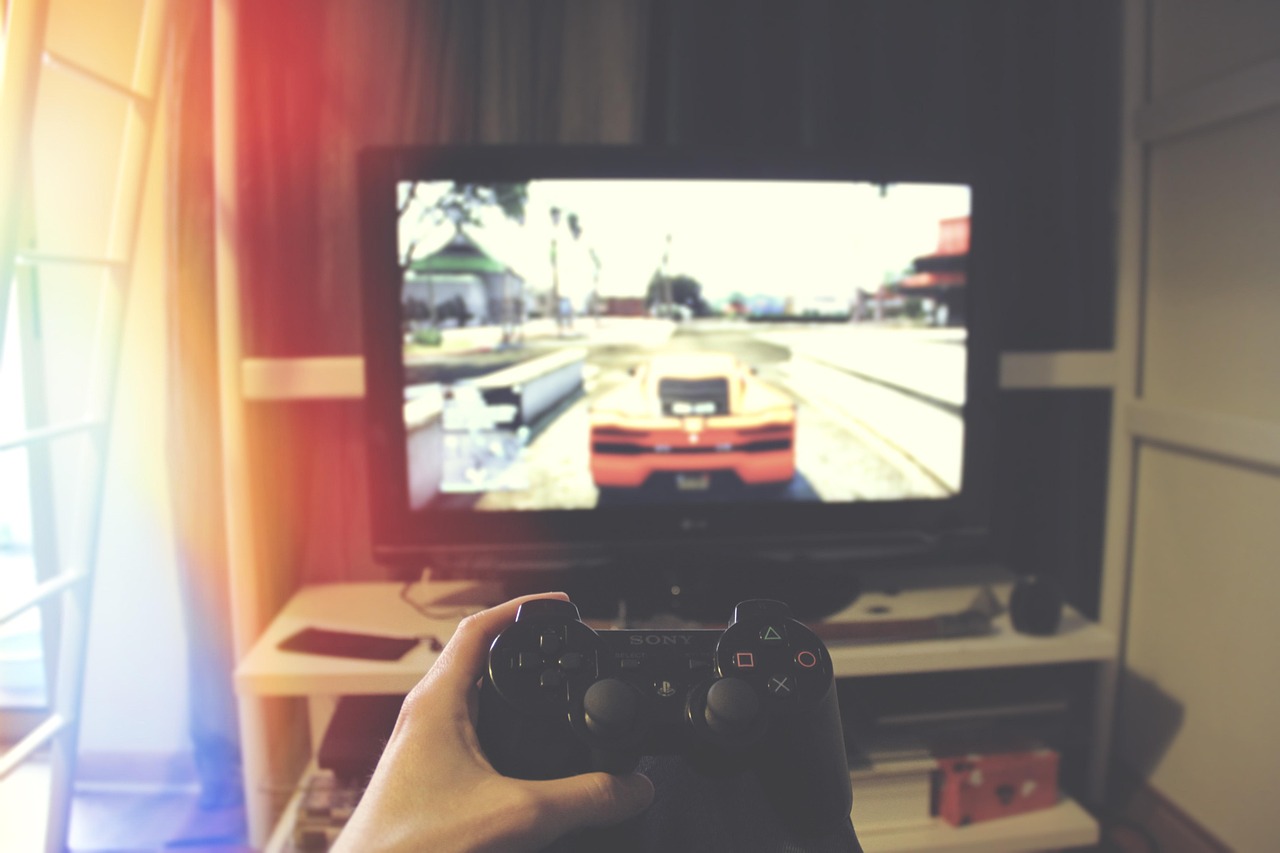Saudi Arabia has also experienced the metamorphic revolution within the last ten years in the gaming culture. Video gaming is no longer an innocent hobby for Saudi teens, but it is a significant aspect of their lives. Gaming portals, console, and even phones have now become available in all parts of the Kingdom, and playing games and fighting in a virtual world turned into an everyday routine to most teens. However, with this increase, there is one crucial question really: is gaming mere enjoyment to young people or is it an addiction?
The cases of gaming addiction in Saudi Arabia, its impacts on mental and physical health of the teenagers, issues of parenting and screen time have become subjects of national interest. The youth comprise a huge portion of the population so knowing this change of trend is important among parents, teachers, and policy makers alike.
The Rise of Gaming Among Saudi Teenagers
Playing games has emerged as one of the most preferred ways of entertainment among Saudi teenagers. High-speed internet, cheap smart-phones, and online multiplayer games have brought up a fierce culture of gaming throughout the Kingdom. Lots of adolescents invest dozens of hours playing games, such as Fortnite, PUBG, Call of Duty, FIFA, and communicate with friends online, creating a new community.
The traditional channels are no longer the only platform for gaming. The cultural change has been as a result of cloud gaming, mobile games, and games on streaming services such as YouTube and Twitch. This interconnection of gaming into everyday routines has prompted researchers to pay more attention to behavior of the youths in Saudi Arabia when it comes to gaming.
Gaming Addiction on the Rise in Saudi Arabia
Although gaming may provide motivation in terms of entertainment, learning and socialization, it has become a cause of concern in the recent past due to both excessive gaming. A number of researches that have been undertaken in the Kingdom provide shocking statistics concerning the problem of addicts of video games in KSA. A notable fraction of teenagers cite spending over five hours a day in gaming and it usually comes at the expense of academics, athletics, and peer contact.
Gaming addiction is gradually becoming a true psychological issue in Saudi Arabia. It is marked with the following behaviors, including compulsive play, irritability when not gaming, divorcement of family and friends, and abandonment of duties. Others have sleep disorders, reduced school achievements, including physical complications as a result of long playing.
Gaming and Its effects on Teenagers in Saudi Arabia
Saudi teenagers are strongly affected by gaming, which is complicated and extended. Positively, gaming can increase hand-eye skills, thinking, as well as problem-solving skills. They may also be used as stress breakers when the day at school is over.
Nevertheless, as far as it gets out of control, the adverse effects of gaming are more relevant. Most gaming addicted teenagers complain of poor performance in school. They have lack of focus in school, tend to be left behind when coming up with assignments and are easily bored with extracurricular activities. Eye strain, bad posture and headaches are also likely to arise due to long term exposure to the screen.
The psychological impact of heavy gaming is that they might induce more anxiety and depression particularly when the teenager is having gaming to forget his real-life challenges. The other issue is isolation. The wide use of online games with others would mean that there are many games that a player plays online yet the interactions are not substantial. The beauty of the virtual worlds is that teens spend a lot of time in them and this may affect their capacity to create and sustain relationships in the real world.
Screen Time and the Implication of Teenagers
The amount of screen time among teenagers in Saudi Arabia has hit all time levels. Smartphone, social media, gaming, and online classes all competing to be at the fore front mean many teens spend even more than eight hours a day staring at a screen. Play alone is a large cause of this number.
Too much time spent on the screen might disrupt sleep cycles. Most adolescents end up playing well into the night and choosing to exchange sleep with another gaming session. This sleep deprivation interferes with their mood, ability to concentrate and physical health. The brain and the body require rests and one only has to see that when the teenager is under the influence of gaming, there is little room left to accommodate vital activities like exercises, family member relations, and school work.
When screens are over-used, they de-sensitize people, too. When young people endure numerous hours in the digital context, they also reduce their overall exposure to the emotional dynamics of the real world. In the long term, it might affect the empathy, patience, and stress-handling ability in the offline environment.
Parenting Challenges in Saudi Arabia’s Gaming Era
Raising kids and playing games in Saudi Arabia is very subtle. Most parents approve of gaming as a form of leisure, and they are usually not informed of the symptoms of addiction and the psychological processes behind how games are so interesting. Overestimating the educational or harmless nature in gaming, some parents may develop the poor boundary problem.
The issue of understanding how children are playing games, the type of games they are being played and how they influence the way children behave should be part of being a good parent. The parents are advised to talk to their teens actively and enforce specific limits to the use of screens, as well as reflection on the contents of the games. It does not imply prohibition of games at all, but it is an invitation to balance and moderation.
In addition, parents should avail alternatives. Adolescents with hobbies such as sports, art, reading or some others are not likely to rely on gaming as a source of entertainment. This is even more vital in areas that cannot offer more activities outside as parents are required to develop interesting activities indoors.
The Role of Schools and Communities
Gaming addiction is an issue that schools and communities in Saudi Arabia have a contribution in solving. Teachers should be educated on how to spot students that might be facing the problem of video game addiction. The awareness programs could be carried out by school counselors to educate children on proper gaming behavior, the management of time and the need to have social interaction in the real world.
Recreational programs, workshops, and youth clubs that would keep teenagers busy with beneficial activity could also be provided at the community centers. These options can diminish the temptation to spend fully gaming by fostering physical activity and instruction in ability and teamwork.
In some schools there have been inclusion of digital well-being into the curriculum. Through this education of students on the dangers of unlimited exposure to technology, models of establishing a positive interrelationship between students and technology, they are instilling mechanisms of self-control within the new generation.
Regional and Gender Differences in Gaming Habits
The gender difference and the regional difference on gaming behavior in Saudi Arabia is interestingly also noticeable. Boys usually prefer more competitive games which could be exciting and girls can prefer simulating or creative games. The risk of addiction however is there to both groups.
Urban residents have wide access to an effective connection to the fast Internet and the newest devices to play games, which may provide more time to play. Conversely, certain parts of the rural areas might not provide opportunities to such kinds of recreation, which has added to the increase in the dependency of the teens on video games as a source of entertainment. These dissimilarities ought to be taken into account when planning awareness campaigns and intervention strategies.
Is Gaming Good?
Not every gaming is bad. A well-balanced approach to gaming may help to acquire strategic thinking, collaboration, and creativity. Math, language-learning and science skills can be supported using educational games. Playing such games with people the user knows in real life can increase social connections, at a time when social distancing or lockdown is a reality.
Other adolescents even acquire several useful abilities that could be applied in real life circumstances or professions due to gaming, including leadership, resource management, and digital communication skills. The computer games may also offer some relief and a feeling of accomplishment, especially to teens who have problems both at school and socially.
The thing is in a balance. Gaming can be a productive influence when it is incorporated into a balanced life style. However, it is a problem when it starts substituting real life duties and bonds.
Future of Games Culture in Saudi Arabia
Since Saudi Arabia shows no signs of stopping its investment in digital infrastructure and entertainment, gaming will still be a part of culture among the youth. The Kingdom is also turning into a center of gaming events, tournaments and even the development of games. This opens possibilities of the teens converting their hobby into programming, graphic design or esports careers.
But along with the opportunities come the load as well. Strategies to make gaming both enjoyable and safe should be shared between policymakers, the educational sector, parents and the gaming community. This must include regulating the content of the games, age limitation and promotion of good gaming practices so that a healthy gaming culture is developed.
Open dialogues about digital health are also worth encouraging. Teens must get an encouragement of their interest and yet be advised on healthy barring. Saudi society can ban the negative effects on its demographic youth and at the same time utilize the positive sides of gaming by investing in bringing this to the consciousness and setting a supportive environment.
Conclusion
In Saudi Arabia youth gaming behavior depends on numerous factors: availability of technology, social conditions, family culture, and local resources. The responsibility of gaming on Saudi teenagers is inevitable and the increased intensities of the screen time are a disturbing situation that needs a quick intervention. Child-rearing and game playing in Saudi Arabia has to come to change to face these challenges. Through making themselves knowledgeable, establishing healthy boundaries and providing quality alternatives, parenting and communities can lead their adolescent towards a healthy digital life.
Gaming is not enemy but unrestricted gaming can become one. The debate of how to stay between fun and addiction is still ahead but making sure that the Saudi teenagers would succeed both in the hyper reality and in real life is the challenge.
To build a healthy digital future for the Kingdom’s youth, we must strike the right balance. Stay informed on evolving youth culture with Know Saudi.




